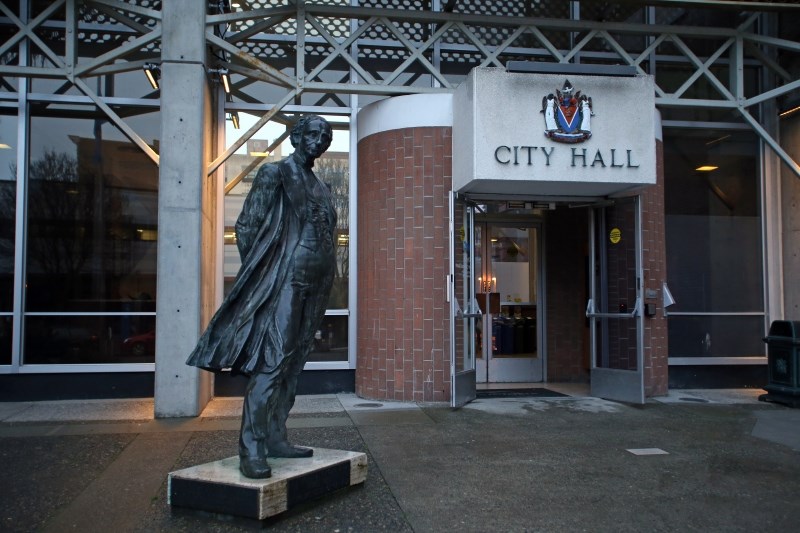As the Capital Regional District struggles to find some relief for its constipated sewage megaproject, Victoria will examine its own options.
Victoria councillors Friday endorsed a resolution from Mayor Dean Fortin and Coun. Marianne Alto to have city staff investigate building one or more sewage treatment plants of its own. The investigation will include the potential of Victoria entering into agreements with other municipalities on sewage treatment.
“This is not about abandoning the region or assuming any outcomes at the regional table. This is about being prepared for Victoria,” Alto said.
“I think this is a chance for us to make sure that the interests of Victoria residents are protected, regardless of what goes forward, and for us to … prepare for an alternative with the idea that we need to inoculate our residents against any unforeseen costs.”
Coun. Geoff Young, who reluctantly supported the motion, said, “I weep for the taxpayers because I am absolutely convinced that the costs will be very much higher.”
Young, chairman of the CRD’s liquid waste management committee, noted the regional district studied in detail a “distributed tertiary treatment model” — which would see several smaller plants serving different areas — and rejected the idea as far more expensive than the $783-million single treatment-plant option that has been proposed.
“The results were not: ‘It’s a little bit more expensive to do distributed tertiary,’ ” Young said. “The results were: ‘It’s way more expensive.’ There was no ambiguity.”
CRD directors are scheduled to meet Wednesday to determine the region’s next steps following Environment Minister Mary Polak’s announcement last month that she would not overturn Esquimalt’s refusal to rezone McLoughlin Point for a regional sewage treatment plant.
After the announcement, the CRD said Polak’s decision meant McLoughlin was to be abandoned as a potential treatment site. As a result, CRD directors have to figure out what to do next.
Esquimalt Mayor Barb Desjardins has proposed suspending Seaterra, the commission overseeing the sewage treatment project, until Jan. 15 to allow the board and member municipalities to consider other options.
She also is calling for termination of all Seaterra-related projects by Sept. 30.
Both Esquimalt and Colwood want to pursue the idea of building smaller treatment plants which could service their communities.
But timing is increasingly becoming a critical factor.
To meet federal wastewater regulations, the CRD is required to have a secondary treatment plant in place by 2015. It has until the end of this month to apply for an extension to 2020, but to make that application, it has to have a plan detailing how it expects to comply with the regulations.
Without McLoughlin as a treatment plant site, there essentially is no plan. That would mean that come Jan. 1, the CRD potentially would be subject to fines of up to $500,000 a day under the Fisheries Act.
The clock is also ticking on $500 million in senior government funding for a regional treatment plant.
The CRD has to have a plant up and running by 2018 to meet federal and provincial government funding deadlines.
Seaterra has selected Harbour Resource Partners as its preferred proponent to design, build and partially finance the planned treatment plant at McLoughlin. But that bid expires July 26.



